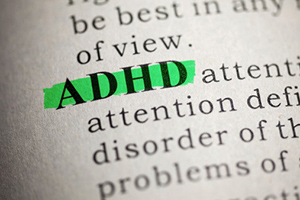It’s ADHD Awareness Month! Get in the Know!

ADHD Awareness Month begins this week. But for the families affected by ADHD, every day is an awareness of ADHD and its impact on their lives.
More than 17 million children and adults are affected by ADHD in the United States. CHADD, its members, and its affiliated groups are taking this time in October to spread the message that knowing is better—when you have knowledge you can take the steps to improve your life and your children’s lives.
“The goal of ADHD Awareness Month is two-fold,” says Leslie Kain, the executive director of CHADD’s National Resource Center on ADHD. “First, to eliminate stigma associated with ADHD and about people who have been diagnosed with it, and to ensure that people with ADHD know they are valuable, not flawed. Secondly, to educate everyone—those with ADHD and the public—that this neurodevelopmental disorder is treatable in ways proven to be successful both in research and in practice.”
Ms. Kain encourages readers to see this week’s Were You Aware? for more on how stigma regarding ADHD affects lives. The misconceptions surrounding ADHD continue to be challenging and demonstrate the need for ADHD awareness. For more, read Myths and Misunderstandings.
What is ADHD?
“ADHD has three components,” says CHADD Professional Advisory Board Co-Chair Max Wiznitzer, MD, a pediatric neurologist at Rainbow Babies & Children’s Hospital in Cleveland, Ohio. “The first component is inattention. This is a broad category that includes poor organization, poor time management, forgetfulness, losing things, and the inability to finish tasks. The second component is overactivity. The third is impulsivity.”
Sometimes, though, people may first be diagnosed and treated for a different condition, often one that is co-occurring with ADHD, such as anxiety or depression, before they receive an accurate diagnosis of ADHD. A thorough evaluation for ADHD for an adult or a child can make a difference in creating a successful treatment plan. An ADHD diagnosis requires a comprehensive evaluation by an experienced professional who can assess signs and symptoms, rule out other causes, and determine the presence or absence of co-occurring conditions.
“Always start with the underlying symptoms and stay open-minded regarding all the possibilities as to why a problem exists,” Dr. Wiznitzer says.
Helping spread awareness
CHADD and the National Resource Center are partnering with the Attention Deficit Disorder Association (ADDA) and the ADHD Coaches Organization (ACO) to form the ADHD Awareness Month Coalition. Together, we are spreading awareness of how common it is to have ADHD (2 out of 25 children, or about 8 percent, and 1 out of 25 adults, or about 4 percent).
The ADHD Awareness Month Coalition is committed to educating people about ADHD by providing user-friendly information, addressing stigma, and empowering people to minimize the impairments and challenges of ADHD so they can unleash their strengths and create a life they love.
CHADD is also using social media to share the message that Knowing is Better: ADHD Through the Lifespan. You can check out social media posts to Like or Share throughout October and all year long at Facebook.com/CHADD.org and Facebook.com/Help4ADHD.
CHADD’s local affiliates, members and friends can download the ADHD Awareness Month Toolkit to help with social media, events planning, and getting the word out that Knowing is Better: ADHD Through the Lifespan to your local media. The toolkit features suggested Facebook and Twitter posts, along with letters to the editor and press release templates you can use where relevant to your organization.
“CHADD is proud to play a critical and vital role in informing, supporting, and advocating for our community of people dealing with ADHD,” Ms. Kain says.
What can you do to help spread the word that Knowing Is Better?
- Print out the NRC fact sheets on ADHD and share them with your friends and community.
- Get tips and resources on how you can increase awareness about ADHD.
- Host an event promoting ADHD Awareness Month or local resources for ADHD and mental health.
- Use your social media—Facebook, Twitter, Instagram and other social media—to spread the message that Knowing is Better.
- Join an event in your area, such as the annual ADHD Walk conducted by CHADD affiliates. Find your local CHADD affiliate or check out the CHADD Calendar of Events.
- Go to the 2017 Annual International Conference on ADHD in November.
How are you helping to share information during ADHD Awareness Month?
Do you or your child have ADHD? October is your month! Get in the know about how ADHD affects everyday life, what effective treatments are available, and what you can do to share the facts on ADHD to improve the lives of people affected by it. People with ADHD have valuable contributions to make to our society. Keep reading for how you can help educate others about ADHD.
